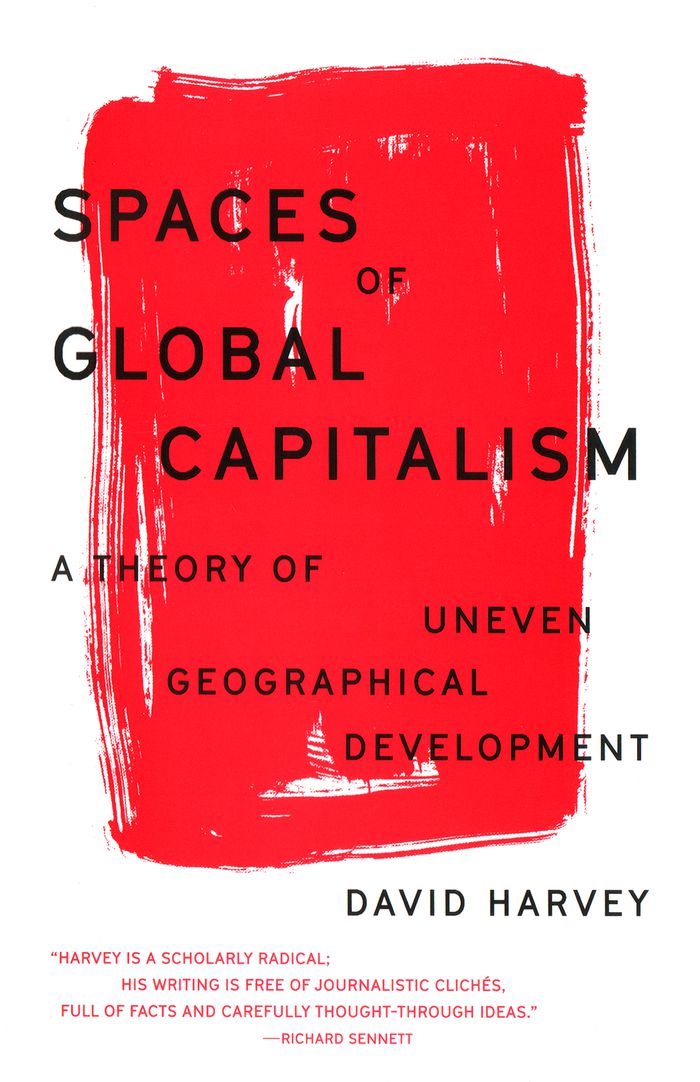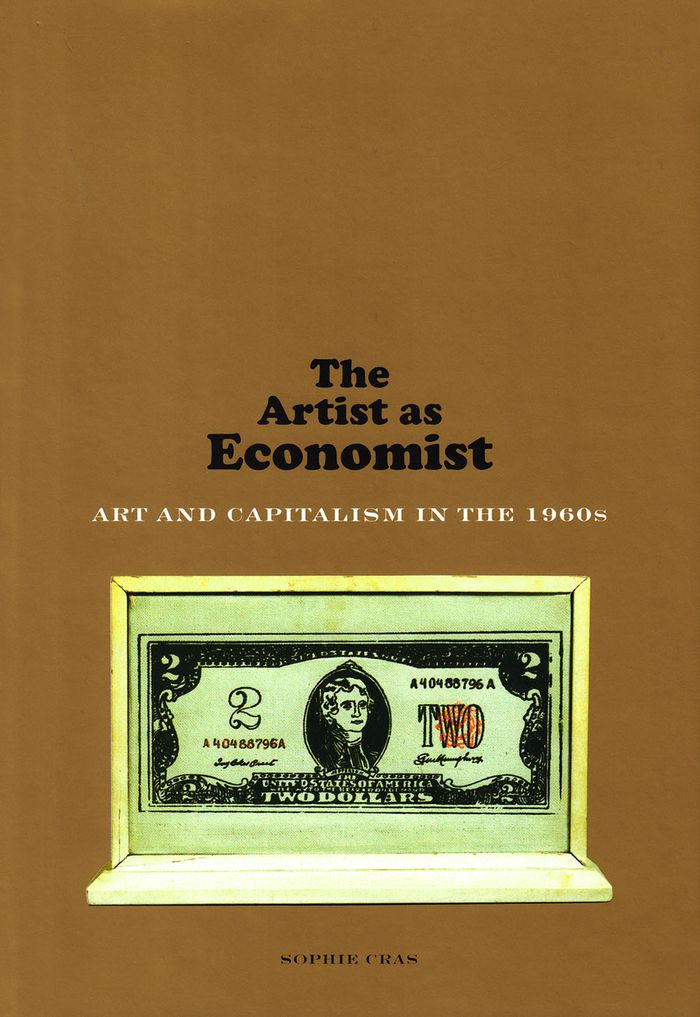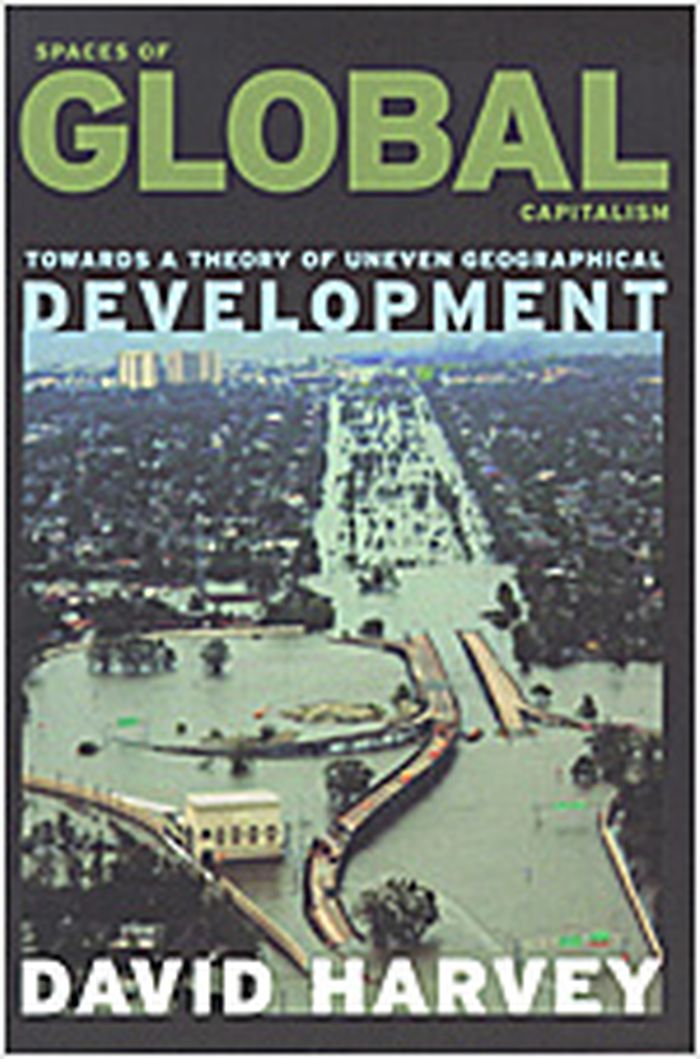894 Résultats
Classification:
livres
livres
Actions:
Exemplaires:
Description:
207 pages : illustrations (some color), maps ; 24 cm
Description:
207 pages : illustrations (some color), maps ; 24 cm
Auteur:
- Christian Schmid -- Jennifer Robinson -- Patrick Le Gales -- Erik Swyngedouw -- Roger Keil -- Benedikte Zitouni -- David Gissen -- Louis Moreno -- Hyun Bang Shin -- Michael Edwards -- Mustafa Dikec -- Karen Bakker -- Stephen Graham -- Sarah Bell -- Meike Wolf -- AbdouMaliq Simone -- Leandro Minuchin -- Giles Omezi -- Andrew Harris -- Pushpa Arabindoo -- Johan Andersson -- Maren Hamack -- Jane Rendell -- Ben Campkin -- Ger Duijzings -- Matthew Gandy -- Sandra Jasper -- Lucrezia Lennert -- Noam Leshem -- Karen E. Till -- Stephen Barber -- Joachim Schlor -- Karolina Kendall-Bush -- Iain Borden -- Mark Tewdwr-Jones -- Rebecca Ross.,
- Gandy, Matthew.
Sujet:
- Urbanization Social aspects.,
- Urbanization Political aspects.,
- Urbanization Economic aspects.,
- Urban policy.,
- City planning.,
- Cities and towns.,
- Sociology, Urban.,
- Cities,
- Urbanization,
- Urbanisation Aspect social.,
- Urbanisation Aspect politique.,
- Urbanisation Aspect économique.,
- Politique urbaine.,
- Villes.,
- Sociologie urbaine.,
- cities.,
- urbanization.,
- urban sociology.,
- Society.,
- Stadt,
- Kultur,
- Urbanität,
- Stadtentwicklung,
- Sozialökologie
Publication:
Berlin : Jovis, ©2011.
Berlin : Jovis, ©2011.
Titre:
Urban constellations / Matthew Gandy (ed.).
Actions:
Exemplaires:
Description:
207 pages : illustrations (some color), maps ; 24 cm
Urban constellations / Matthew Gandy (ed.).
Actions:
Exemplaires:
Description:
207 pages : illustrations (some color), maps ; 24 cm
Classification:
livres
livres
Publication:
Berlin : Jovis, ©2011.
Berlin : Jovis, ©2011.
Auteur:
- Christian Schmid -- Jennifer Robinson -- Patrick Le Gales -- Erik Swyngedouw -- Roger Keil -- Benedikte Zitouni -- David Gissen -- Louis Moreno -- Hyun Bang Shin -- Michael Edwards -- Mustafa Dikec -- Karen Bakker -- Stephen Graham -- Sarah Bell -- Meike Wolf -- AbdouMaliq Simone -- Leandro Minuchin -- Giles Omezi -- Andrew Harris -- Pushpa Arabindoo -- Johan Andersson -- Maren Hamack -- Jane Rendell -- Ben Campkin -- Ger Duijzings -- Matthew Gandy -- Sandra Jasper -- Lucrezia Lennert -- Noam Leshem -- Karen E. Till -- Stephen Barber -- Joachim Schlor -- Karolina Kendall-Bush -- Iain Borden -- Mark Tewdwr-Jones -- Rebecca Ross.,
- Gandy, Matthew.
Sujet:
- Urbanization Social aspects.,
- Urbanization Political aspects.,
- Urbanization Economic aspects.,
- Urban policy.,
- City planning.,
- Cities and towns.,
- Sociology, Urban.,
- Cities,
- Urbanization,
- Urbanisation Aspect social.,
- Urbanisation Aspect politique.,
- Urbanisation Aspect économique.,
- Politique urbaine.,
- Villes.,
- Sociologie urbaine.,
- cities.,
- urbanization.,
- urban sociology.,
- Society.,
- Stadt,
- Kultur,
- Urbanität,
- Stadtentwicklung,
- Sozialökologie
Actions:
Prix:
$25.95
(disponible sur commande)
Résumé:
Fiscal crises have cascaded across much of the developing world with devastating results, from Mexico to Indonesia, Russia and Argentina. The extreme volatility in contemporary political economic fortunes seems to mock our best efforts to understand the forces that drive development in the world economy. David Harvey is the single most important geographer writing today(...)
$25.95
(disponible sur commande)
Résumé:
Fiscal crises have cascaded across much of the developing world with devastating results, from Mexico to Indonesia, Russia and Argentina. The extreme volatility in contemporary political economic fortunes seems to mock our best efforts to understand the forces that drive development in the world economy. David Harvey is the single most important geographer writing today(...)
Titre:
Spaces of global capitalism: a theory of uneven geographical development
Actions:
Prix:
$25.95
(disponible sur commande)
Résumé:
Fiscal crises have cascaded across much of the developing world with devastating results, from Mexico to Indonesia, Russia and Argentina. The extreme volatility in contemporary political economic fortunes seems to mock our best efforts to understand the forces that drive development in the world economy. David Harvey is the single most important geographer writing today and a leading social theorist of our age, offering a comprehensive critique of contemporary capitalism. In this book, he shows the way forward for just such an understanding, enlarging upon the key themes in his recent work: the development of neoliberalism, the spread of inequalities across the globe, and ‘space’ as a key theoretical concept.
Spaces of global capitalism: a theory of uneven geographical development
Actions:
Prix:
$25.95
(disponible sur commande)
Résumé:
Fiscal crises have cascaded across much of the developing world with devastating results, from Mexico to Indonesia, Russia and Argentina. The extreme volatility in contemporary political economic fortunes seems to mock our best efforts to understand the forces that drive development in the world economy. David Harvey is the single most important geographer writing today and a leading social theorist of our age, offering a comprehensive critique of contemporary capitalism. In this book, he shows the way forward for just such an understanding, enlarging upon the key themes in his recent work: the development of neoliberalism, the spread of inequalities across the globe, and ‘space’ as a key theoretical concept.
Sujet:
Théorie de l’urbanisme
Théorie de l’urbanisme
Classification:
audio
audio
Actions:
Description:
1 online resource.
Auteur:
Sujet:
- Feminist theory.,
- Sociology.,
- Théorie féministe.,
- Sociologie.,
- sociology.,
- Interviews.,
- Podcasts.
Publication:
[Place of publication not identified] : The Funambulist, 2018.
[Place of publication not identified] : The Funambulist, 2018.
Classification:
audio
audio
Publication:
[Place of publication not identified] : The Funambulist, 2018.
[Place of publication not identified] : The Funambulist, 2018.
Auteur:
Sujet:
- Feminist theory.,
- Sociology.,
- Théorie féministe.,
- Sociologie.,
- sociology.,
- Interviews.,
- Podcasts.
Classification:
livres
livres
Sujet:
- Twenty-first century in art,
- Economics,
- Performance Art,
- Photography, Artistic,
- Text
Publication:
Sternberg Press Academy of Fine Arts Vienna 2014
Sternberg Press Academy of Fine Arts Vienna 2014
Classification:
livres
livres
Publication:
Sternberg Press Academy of Fine Arts Vienna 2014
Sternberg Press Academy of Fine Arts Vienna 2014
Sujet:
- Twenty-first century in art,
- Economics,
- Performance Art,
- Photography, Artistic,
- Text
Classification:
livres
livres
Actions:
Exemplaires:
Description:
xii, 273 pages : illustrations ; 24 cm.
Description:
xii, 273 pages : illustrations ; 24 cm.
Auteur:
Sujet:
- Foreign workers, East Indian Persian Gulf States.,
- Petroleum workers Persian Gulf States.,
- East Indians Persian Gulf States.,
- Petroleum industry and trade Social aspects Persian Gulf States.,
- Travailleurs étrangers de l'Inde États du golfe Persique.,
- Travailleurs du pétrole États du golfe Persique.,
- Indiens (Habitants de l'Inde) États du golfe Persique.,
- Pétrole Industrie et commerce Aspect social États du golfe Persique.,
- BUSINESS & ECONOMICS / Economics / General.,
- East Indians,
- Emigration and immigration Social aspects,
- Foreign workers, East Indian,
- Petroleum industry and trade Social aspects,
- Petroleum workers,
- Persian Gulf States Emigration and immigration Social aspects.,
- India Emigration and immigration Social aspects.,
- États du golfe Persique Émigration et immigration Aspect social.,
- India,
- Persian Gulf States
Publication:
Stanford, California : Stanford University Press, [2021], ©2021
Stanford, California : Stanford University Press, [2021], ©2021
Titre:
Between dreams and ghosts : Indian migration and Middle Eastern oil / Andrea Wright.
Actions:
Exemplaires:
Description:
xii, 273 pages : illustrations ; 24 cm.
Between dreams and ghosts : Indian migration and Middle Eastern oil / Andrea Wright.
Actions:
Exemplaires:
Description:
xii, 273 pages : illustrations ; 24 cm.
Classification:
livres
livres
Publication:
Stanford, California : Stanford University Press, [2021], ©2021
Stanford, California : Stanford University Press, [2021], ©2021
Auteur:
Sujet:
- Foreign workers, East Indian Persian Gulf States.,
- Petroleum workers Persian Gulf States.,
- East Indians Persian Gulf States.,
- Petroleum industry and trade Social aspects Persian Gulf States.,
- Travailleurs étrangers de l'Inde États du golfe Persique.,
- Travailleurs du pétrole États du golfe Persique.,
- Indiens (Habitants de l'Inde) États du golfe Persique.,
- Pétrole Industrie et commerce Aspect social États du golfe Persique.,
- BUSINESS & ECONOMICS / Economics / General.,
- East Indians,
- Emigration and immigration Social aspects,
- Foreign workers, East Indian,
- Petroleum industry and trade Social aspects,
- Petroleum workers,
- Persian Gulf States Emigration and immigration Social aspects.,
- India Emigration and immigration Social aspects.,
- États du golfe Persique Émigration et immigration Aspect social.,
- India,
- Persian Gulf States
Classification:
audio
audio
Actions:
Description:
1 online resource.
Auteur:
Sujet:
- Artists.,
- Feminism and art.,
- Motion pictures.,
- Video art.,
- Artistes.,
- Féminisme et art.,
- Art vidéo.,
- video art.,
- Interviews.,
- Podcasts.
Publication:
[Place of publication not identified] : e-flux, 2024.
[Place of publication not identified] : e-flux, 2024.
Classification:
audio
audio
Publication:
[Place of publication not identified] : e-flux, 2024.
[Place of publication not identified] : e-flux, 2024.
Auteur:
Sujet:
- Artists.,
- Feminism and art.,
- Motion pictures.,
- Video art.,
- Artistes.,
- Féminisme et art.,
- Art vidéo.,
- video art.,
- Interviews.,
- Podcasts.
Classification:
livres
livres
Actions:
Description:
1 online resource
Auteur:
- Bunz, Mercedes,,
- Kaiser, Birgit Mara,,
- Thiele, Kathrin, 1972-,
- Open Access Journal.
Sujet:
Publication:
Lüneburg, Germany : Meson Press, 2017.
Lüneburg, Germany : Meson Press, 2017.
Titre:
Symptoms of the planetary condition : a critical vocabulary / edited by Mercedes Bunz, Birgit Mara Kaiser, and Kathrin Thiele.
Actions:
Description:
1 online resource
Symptoms of the planetary condition : a critical vocabulary / edited by Mercedes Bunz, Birgit Mara Kaiser, and Kathrin Thiele.
Actions:
Description:
1 online resource
Classification:
livres
livres
Publication:
Lüneburg, Germany : Meson Press, 2017.
Lüneburg, Germany : Meson Press, 2017.
Auteur:
- Bunz, Mercedes,,
- Kaiser, Birgit Mara,,
- Thiele, Kathrin, 1972-,
- Open Access Journal.
Sujet:
Prix:
$88.95
(disponible sur commande)
Résumé:
Bearing witness to the changing economic landscape amid the Cold War, artists in the 1960s created works that critiqued, reshaped, and sometimes reinforced the spirit of capitalism. At a time when currency and finance were becoming ever more abstracted—and the art market increasingly an arena for speculation—artists on both sides of the Atlantic turned to economic themes,(...)
$88.95
(disponible sur commande)
Résumé:
Bearing witness to the changing economic landscape amid the Cold War, artists in the 1960s created works that critiqued, reshaped, and sometimes reinforced the spirit of capitalism. At a time when currency and finance were becoming ever more abstracted—and the art market increasingly an arena for speculation—artists on both sides of the Atlantic turned to economic themes,(...)
Titre:
The artist as economist: art and capitalism in the 1960s
Actions:
Prix:
$88.95
(disponible sur commande)
Résumé:
Bearing witness to the changing economic landscape amid the Cold War, artists in the 1960s created works that critiqued, reshaped, and sometimes reinforced the spirit of capitalism. At a time when currency and finance were becoming ever more abstracted—and the art market increasingly an arena for speculation—artists on both sides of the Atlantic turned to economic themes, often grounded in a human context. ''The artist as economist'' examines artists who approached these issues in critical, imaginative, and humorous ways. Such examples, which author Sophie Cras insightfully situates within their historic economic context, reveal capitalism’s visual dimension. As art and economics grow more entangled, this volume offers a timely consideration of art’s capacity to reflect on and reimagine economic systems.
The artist as economist: art and capitalism in the 1960s
Actions:
Prix:
$88.95
(disponible sur commande)
Résumé:
Bearing witness to the changing economic landscape amid the Cold War, artists in the 1960s created works that critiqued, reshaped, and sometimes reinforced the spirit of capitalism. At a time when currency and finance were becoming ever more abstracted—and the art market increasingly an arena for speculation—artists on both sides of the Atlantic turned to economic themes, often grounded in a human context. ''The artist as economist'' examines artists who approached these issues in critical, imaginative, and humorous ways. Such examples, which author Sophie Cras insightfully situates within their historic economic context, reveal capitalism’s visual dimension. As art and economics grow more entangled, this volume offers a timely consideration of art’s capacity to reflect on and reimagine economic systems.
Actions:
Prix:
$38.00
(disponible sur commande)
Résumé:
Fiscal crises have cascaded across much of the developing world with devastating results, from Mexico to Indonesia, Russia and Argentina. The extreme volatility in contemporary political economic fortunes seems to mock our best efforts to understand the forces that drive development in the world economy. In this book, David Harvey shows how the disciplines of historical(...)
$38.00
(disponible sur commande)
Résumé:
Fiscal crises have cascaded across much of the developing world with devastating results, from Mexico to Indonesia, Russia and Argentina. The extreme volatility in contemporary political economic fortunes seems to mock our best efforts to understand the forces that drive development in the world economy. In this book, David Harvey shows how the disciplines of historical(...)
Titre:
Spaces of global capitalism : towards a theory of uneven geographical development
Actions:
Prix:
$38.00
(disponible sur commande)
Résumé:
Fiscal crises have cascaded across much of the developing world with devastating results, from Mexico to Indonesia, Russia and Argentina. The extreme volatility in contemporary political economic fortunes seems to mock our best efforts to understand the forces that drive development in the world economy. In this book, David Harvey shows how the disciplines of historical geography yield decisive new insights into the workings of global capitalism, and introduces the concept of uneven geographical development as a revelatory perspective on the forces which create economic success or failure.
Spaces of global capitalism : towards a theory of uneven geographical development
Actions:
Prix:
$38.00
(disponible sur commande)
Résumé:
Fiscal crises have cascaded across much of the developing world with devastating results, from Mexico to Indonesia, Russia and Argentina. The extreme volatility in contemporary political economic fortunes seems to mock our best efforts to understand the forces that drive development in the world economy. In this book, David Harvey shows how the disciplines of historical geography yield decisive new insights into the workings of global capitalism, and introduces the concept of uneven geographical development as a revelatory perspective on the forces which create economic success or failure.
Sujet:
Théorie/ philosophie
Théorie/ philosophie
Classification:
audio
audio
Description:
1 online resource.
Auteur:
Sujet:
- Border security.,
- Geopolitics.,
- Imperialism.,
- Nationalism.,
- Postcolonialism.,
- Racism.,
- Sécurité frontalière.,
- Géopolitique.,
- Impérialisme.,
- Nationalisme.,
- Racisme.,
- geopolitics.,
- nationalism.,
- Interviews.,
- Podcasts.
Publication:
[Place of publication not identified] : The Funambulist, 2021.
[Place of publication not identified] : The Funambulist, 2021.
Titre:
An Internationalist Front Against Border Imperialism.
Actions:
Description:
1 online resource.
An Internationalist Front Against Border Imperialism.
Actions:
Description:
1 online resource.
Classification:
audio
audio
Publication:
[Place of publication not identified] : The Funambulist, 2021.
[Place of publication not identified] : The Funambulist, 2021.
Auteur:
Sujet:
- Border security.,
- Geopolitics.,
- Imperialism.,
- Nationalism.,
- Postcolonialism.,
- Racism.,
- Sécurité frontalière.,
- Géopolitique.,
- Impérialisme.,
- Nationalisme.,
- Racisme.,
- geopolitics.,
- nationalism.,
- Interviews.,
- Podcasts.


